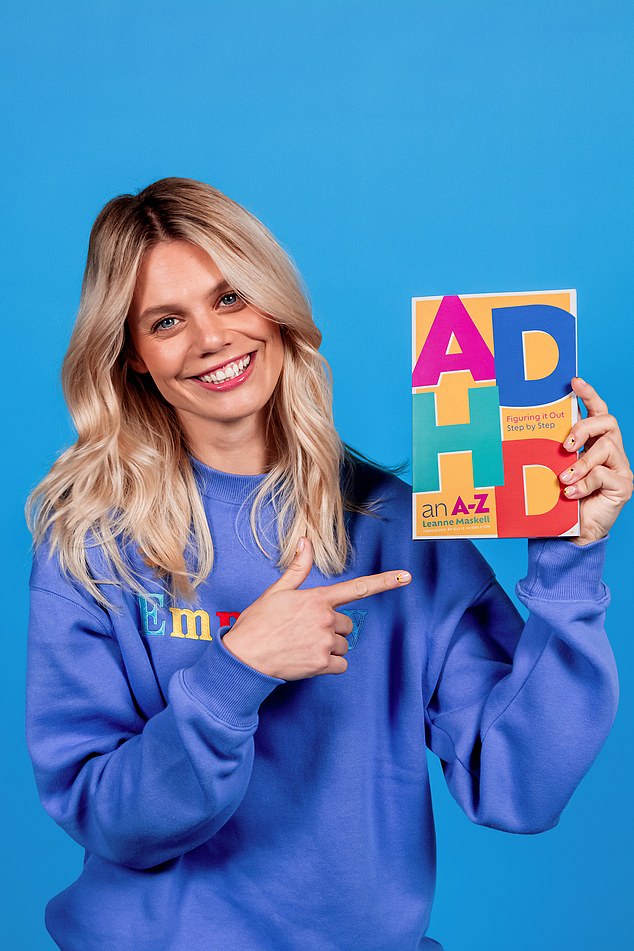Understanding the Impact of Words on People with ADHD
Leanne Maskell, a former fashion model turned neurodiversity advocate, has shared some powerful insights about how certain phrases can deeply affect individuals with Attention Deficit Hyperactivity Disorder (ADHD). Diagnosed with ADHD and autism in her mid-20s, she has become a prominent voice in the conversation around neurodiversity. Her two best-selling books,AuDHD: Blooming DifferentlyandADHD Works at Work, offer a unique perspective on living with these conditions.
Leanne recalls her initial reaction to her diagnosis: “When I was diagnosed with ADHD, I burst out laughing and said, ‘no, I have a real problem.'” She felt like she was being labeled as lazy, attention-seeking, or emotionally unstable—terms that had been used to describe her for years. But now, she sees the diagnosis as a way to understand her experiences better.
ADHD was historically thought to primarily affect boys, similar to autism. However, there has been a growing awareness among women who discover they have the condition later in life. While men can also be diagnosed at any age, the number of people with ADHD is expected to rise as more individuals recognize the signs and seek formal diagnoses.
In the UK, it is estimated that 2.6 million people live with ADHD, which affects concentration, impulse control, and activity levels. The condition is becoming more visible, but access to assessments remains a challenge.

The Struggles of Waiting for an ADHD Assessment
In March, data revealed that over half a million people in England were waiting for ADHD assessments, up from 416,000 the previous year. This increase highlights the growing demand for support, but it also exposes a significant issue: long waiting times. Of those waiting, 304,000 had been waiting for at least a year, and 144,000 for two years or more.
For many, these delays are not just inconvenient—they are emotionally taxing. Leanne explains that certain phrases can trigger Rejection Sensitive Dysphoria (RSD), an intense emotional reaction to perceived rejection, criticism, or failure. This condition is common among people with ADHD, who often feel criticized for being “too much” or “not good enough.”
The Five Phrases That Trigger Anxiety
Leanne has identified five specific phrases that can cause significant anxiety for people with ADHD:
-
“Can we have a quick chat?”
What may seem like a casual request can be interpreted as a threat. For someone with ADHD, this phrase might evoke images of being reprimanded or criticized. Leanne suggests adding context, such as “it’s about X,” to reduce the anxiety associated with the unknown. -
“We should catch up!”
An invitation to meet up can lead to a mental loop of uncertainty. Will the person remember you? Will they want to talk? These questions can create a sense of dread and hesitation. -
“How was your weekend?”
This seemingly simple question can be frustrating. Leanne notes that the expected response is often “fine thanks, you?” rather than an honest account of the day. This can feel dismissive and insincere. -
“Can you just…?”
The word “just” can be triggering for people with ADHD. It implies simplicity, but for those struggling with executive dysfunction, even small tasks can feel overwhelming. Leanne emphasizes that communication and comprehension are not always aligned. -
“Free…”
The allure of something “free” can be tempting for individuals with ADHD, who often crave novel experiences. However, the same condition that makes them susceptible to impulsive purchases can also make it difficult to manage the consequences of those choices.
These phrases highlight the challenges faced by people with ADHD in everyday interactions. By understanding the impact of language, we can create a more supportive environment for neurodiverse individuals.
